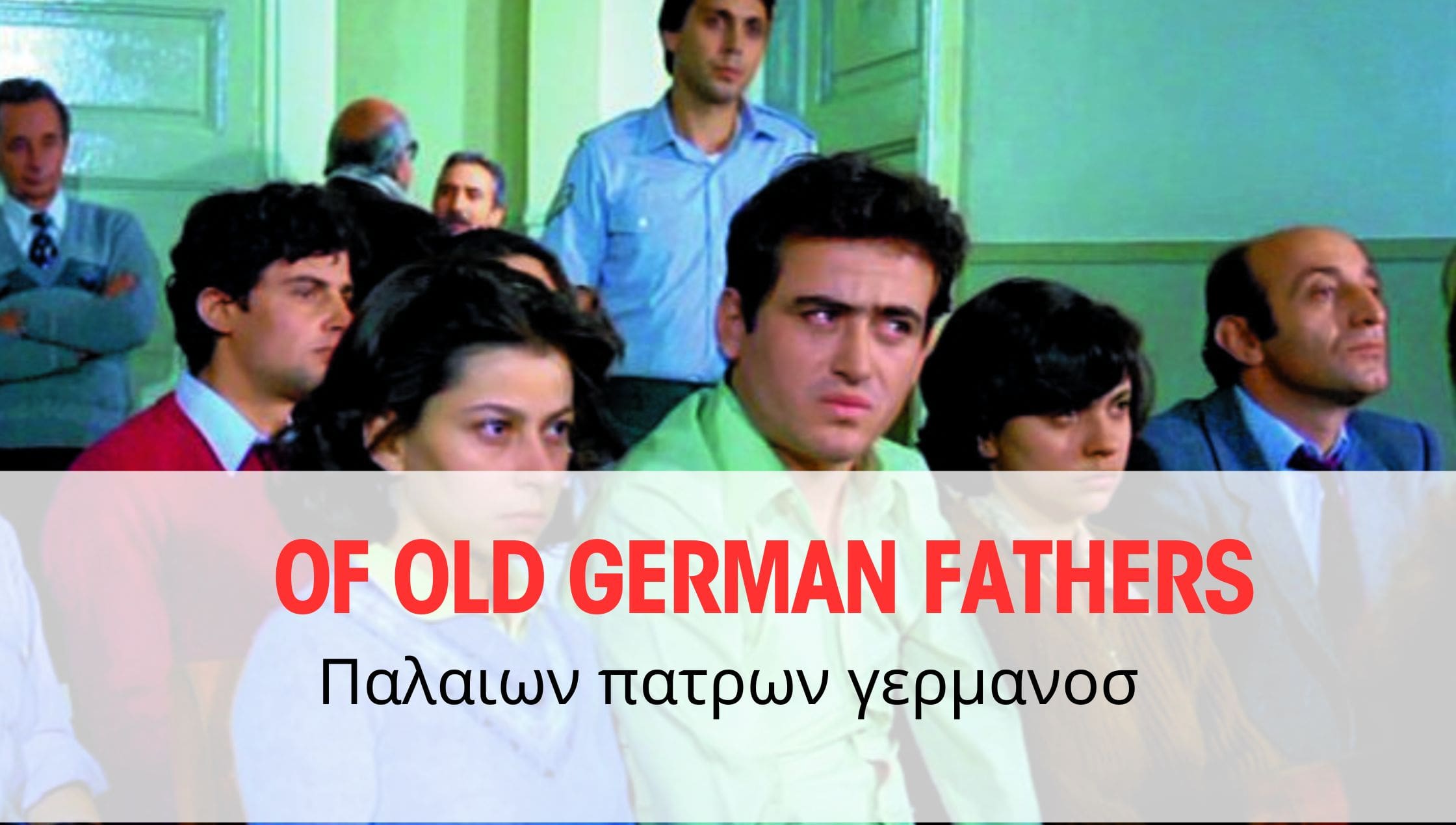Of Old German Fathers: The dialogue between a young player, around twenty years old, and the host on a popular quiz show is presented here verbatim. It was preceded by a question about Palaios Patron Germanos.
Host: Palaios Patron Germanos.
Player: What is this?
Host: What did we do in 1821?
Player: What did we do? Occupation.
Host: How is it called? What do we celebrate?
Player: War. We celebrate the NO.
With this, it seems they somehow reached an understanding of what happened in 1821. And the fun continues.
Host: So, since he participated in this, what was he? A…
Player (with unwavering confidence and a hint of triumph): German.
Host: How do we characterize all those who fought then? We say they were…
Player: Heroes. Yes, but he’s German, so…
Host: No, my dear, his name was that. The person was not German.
Then, it appears that, with the help of the host, the player should find keywords to describe Palaios Patron Germanos to his team. They have settled on four (war, 1821, revolution, hero) and are searching for one more. “Should I put Occupation?” the young man eagerly asks. “No, no,” the host replies and repeats the words.
However, the young man doesn’t seem willing to negotiate his knowledge and insists, “Occupation.” The host doesn’t want to offend him, insists with a simple “no,” and repeats the words. The young man, however, doesn’t seem willing to compromise his knowledge and persists. “Occupation.” The host doesn’t want to offend him, simply insists with a “no.” Then the young man asks for more clarification. “What was he like? Handsome? Tall? Slim?” “Well, what can I say? I hadn’t met him up close,” the woman concludes.
This child probably would have been at Syntagma Square last week to protest with classmates or fellow students against the establishment of private universities. He would think it’s a downgrade of free education. That it’s fine now, and non-state ones will come to ruin it all.
That’s what he was told, and that’s what he believes. And the young man is the last one to blame for both the “up until now” and the “from now on.” Who ever spoke to him about the process of knowledge? Which teacher took him (figuratively) by the hand to teach him not just dates he would forget the next day but to “guide” him through the fields and times of events? To open for him the “back door” to all that he used to parrot?
Don’t Shoot Mona Lisa
The incident is well-known. Two activists threw soup at the (fortunately protected by bulletproof glass) Mona Lisa at the Louvre. And then, with a raised fist of revolution, they shouted in front of Leonardo da Vinci’s painting, “What is more important? Art or the right to sustainable and healthy food?”
This is not a dilemma. It’s like comparing apples to oranges. Not even that. What does it mean? If, in some way, all works of art are destroyed, will the world be satisfied? Neither are the women activists. Activism as destruction is a completely arbitrary translation of the term and concept. Such actions have one and only one goal: Western civilization and its achievements. These bother those who would like a Europe without museums, without monuments. The enigmatic gaze of the Mona Lisa, the admired symmetry of the Parthenon. All that cannot be subordinated to any ideology.
People Also Read: Mirrella Papaioconomou: I didn’t hear my name anywhere



